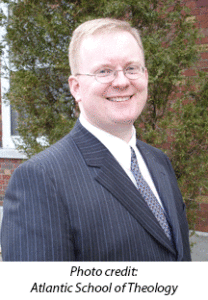
Covert Racism in the Canadian Context: Racism, the Teacher, and the Classroom
The most uncomfortable thing I ever say among professional colleagues is that when I was a child I was taught that we are all racist. In 1970s Western Canada, where I grew up, racism was real but often obscured by polite indifference and feigned ignorance. Yet our public school system urged us to see that within most of us there is an element that fears and reacts to difference. The terms for this dynamic were probably different then, but that was the heart of the lesson. Racially, our little school was not very diverse, but the multi-ethnic nature of the immigrant and indigenous Prairies made insults, slurs, taunts, and occasional related violence an ever-present reality for us.
Much later, as an adult, saying among my peers that racism is not something I fully deny to be true about myself has been met with silence and scowls. I can imagine them thinking (as I think myself), no one, certainly not educated people, should be racist! I agree. I denounce racism and actively try to combat it to the best of my ability. And yet … my early formation wrestles inside me to insist that the task is not in fact to deny our inner racist proclivities, but to acknowledge them and to be honest about the struggle to overcome them. The longing for a just, equitable, and loving society is profoundly real in me as a Christian. But that longing is framed by a desire for honesty, not for permission (which is abundant in my context) to retreat once again under the veneer of majority-culture indifferent politesse. I have learned, and am still learning, that such a retreat only worsens the injustice that flourishes within racist, classist, sexist, and other oppressive structures.
 To take this perspective into the classroom is almost – but not quite – as daunting. My students are structurally preconditioned to be receptive to what I teach, simply because I am the professor with the chalk in my hand. I encourage them to disagree with me (about everything) whenever they like, since I think that’s an outstanding way for all of us to learn. But to speak of racism as I do – and perhaps because I do not do so often enough – seems to alienate them as “nice Canadians.” And when I add the theological analysis of racism as a symptom and cause of sin, both personal and systemic, I am really on thin ice with folks allergic to sin-talk. I have to risk my credibility as a professor with this difficult truth that the realities of race privilege and inner xenophobia are never completely erased.
To take this perspective into the classroom is almost – but not quite – as daunting. My students are structurally preconditioned to be receptive to what I teach, simply because I am the professor with the chalk in my hand. I encourage them to disagree with me (about everything) whenever they like, since I think that’s an outstanding way for all of us to learn. But to speak of racism as I do – and perhaps because I do not do so often enough – seems to alienate them as “nice Canadians.” And when I add the theological analysis of racism as a symptom and cause of sin, both personal and systemic, I am really on thin ice with folks allergic to sin-talk. I have to risk my credibility as a professor with this difficult truth that the realities of race privilege and inner xenophobia are never completely erased.
A trusted friend and colleague once told me that as a white man I am “at the top of the food chain.” I hated and still hate that remark. But I have to be truthful about power and sharing power; about privilege and renouncing privilege. It is not good enough to disown my friend’s remark and claim innocence. Rather, my actions, my teaching, my thinking – and my heart – all need to come to a greater honesty about my agency, and the agency of each of us, in a society that oppresses some and privileges others, for no reason apart from the colour of our skin.
Thanks Rob. I really appreciate your post, your honesty, and your integrity in the classroom.